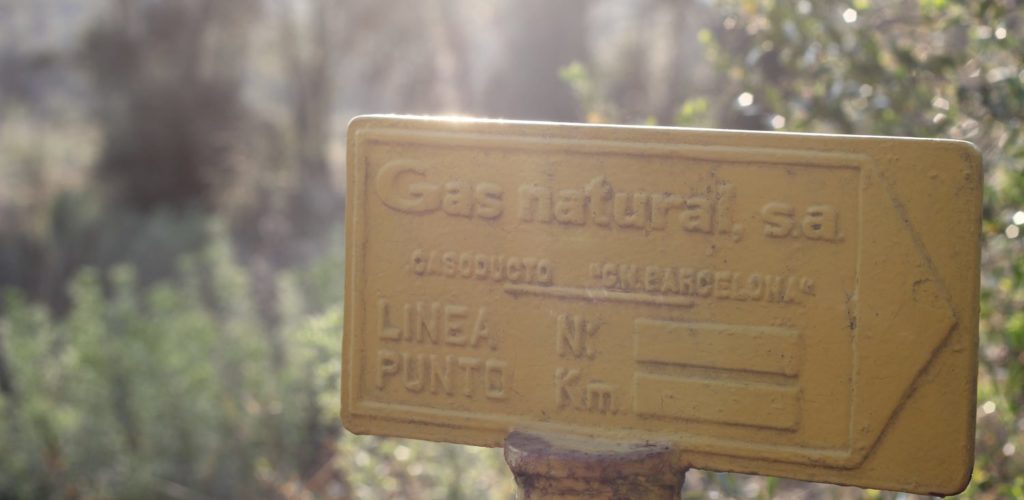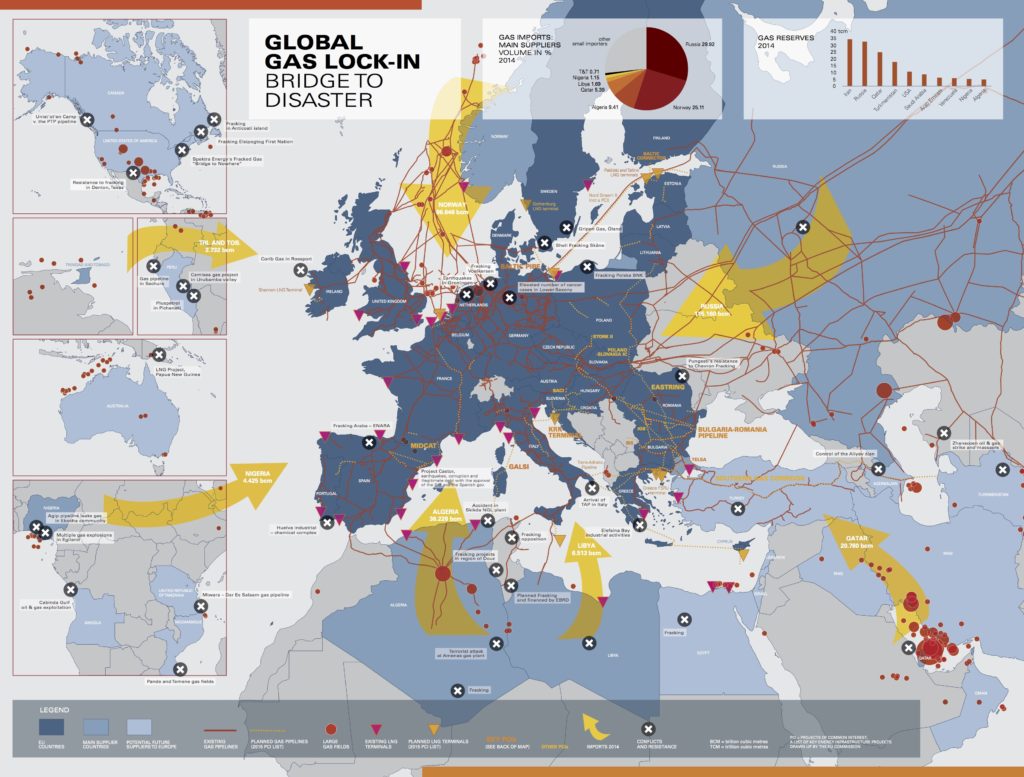Projects Of Common Interest (PCI)

The PCI List: the EU’s fossil gas problem
The EU has great ambitions to tackle climate change, but its ongoing support for fossil gas is standing in its way. The key EU policies and legislation that we have on our radar are the PCI list and the TENE-Regulation.
PCIs are ‘Projects of Common Interest’ – they are energy projects that supposedly are vital pieces of infrastructure. PCIs can get fast-tracked planning permission and can apply for EU funds under the ‘Connecting Europe Facility’. Major gas infrastructure like the TAP pipeline, Krk LNG terminal and the EastMed pipeline have received billions of euros in public money thanks to their place on the PCI List.
The TENE-Regulation defines the criteria under which projects can be included on the PCI list.
The campaign against the PCI List
Gas fighters all over Europe are opposing projects on the PCI List. In the PCI campaign, these groups come together to challenge the EU’s dependence on fossil gas. The Gastivists have been working with grassroots groups, national campaigns and EU NGOs to fight the PCI List. We create and disseminate resources to help groups around Europe lobby their MEPs, take part in public consultations and engage with European Commission. This creates major pressure on policy-makers and holds them to account for their green-washing.
What does a PCI look like?
Some of the major gas PCIs that currently have priority EU support are:
Southern Gas Corridor & Trans-Adriatic Pipeline (TAP)
A gas pipeline intended to bring gas from Azerbaijan and Turkmenistan to Italy; it is the most ambitious energy infrastructure to be undertaken by the European Union to date. This means EU support for the corrupt and repressive regime of the Aliyev family, which rules Azerbaijan. The pipeline project spans 3.500 km across countries as Turkey, Greece and Albania and will carry 10bcm of climate-wrecking gas to Europe (a proportionally small amount compared to the project’s cost of 45 billion US$). Furthermore, the impact this will have on the countries it passes through has not been taken into consideration. For example, at the farthest end of Italy, the organisation No TAP is against the project because of the damage it will cause to local ecosystems. In Greece and Albania there are also concerns about farmland and tourism.
Krk LNG Terminal
This floating LNG terminal is being built in Croatia, on the Island of Krk. The terminal would provide a source of gas to the Baltic and Balkan states, Moldova, Romania, Bulgaria, Austria, Greece, Turkey, and Ukraine. The local municipalities are opposed to the project, which will damage the tourism industry on which the island depends. Nevertheless, the Croatian government and the EU have given huge support to this project, implementing new laws to benefit the terminal and providing millions of euros for its construction.
EastMed/Poseidon Pipeline
This pipeline would bring gas from the highly contested Eastern Mediterranean gas fields via Cyprus and Greece to Italy (ending in the same areas as the TAP project). It would be the world’s deepest and longest offshore pipeline, which raises concerns for the marine environment. It is also connected to militarisation and arms deals in an area rife with geopolitical tensions.

Map by RosaLuxemburg Foundation on Europe’s push for gas (2017)
